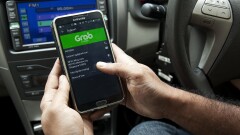Coinbase's public listing came quickly on the heels of the ride-sharing app Grab announcing plans to go public through a deal that could value it at nearly $40 billion. They're just two examples of companies taking advantage of the past year's rush to digital payments to raise billions in the stock market.
Both companies are also diversifying their business lines by adding payment products and financial services, drawn by the cross-selling opportunities and recurring usage that comes with digital commerce. The pandemic accelerated an existing shift to digital, creating demand for companies that can support automation.
Most of these listings aren't traditional IPOs. In many cases, the public listings are being expedited through alternatives, such as special purpose acquisition companies or direct listings, which provide a faster route to go public but can also attract less experienced investors.
There is a building need for payments technology, along with the funding to fuel innovation. Writing for









